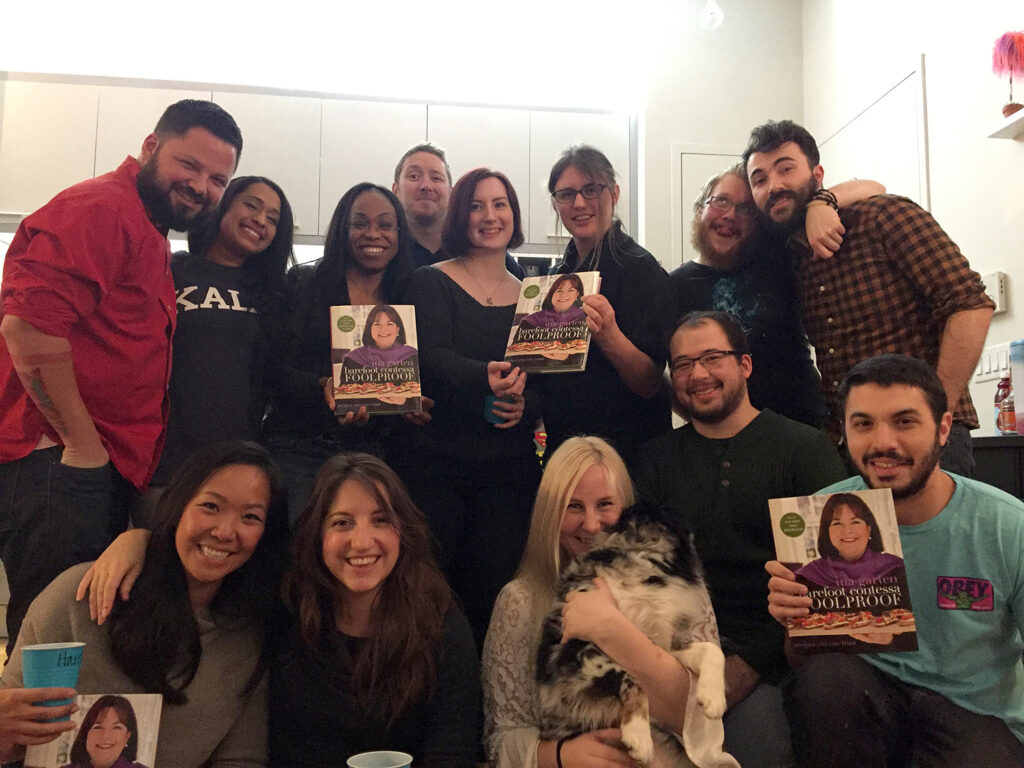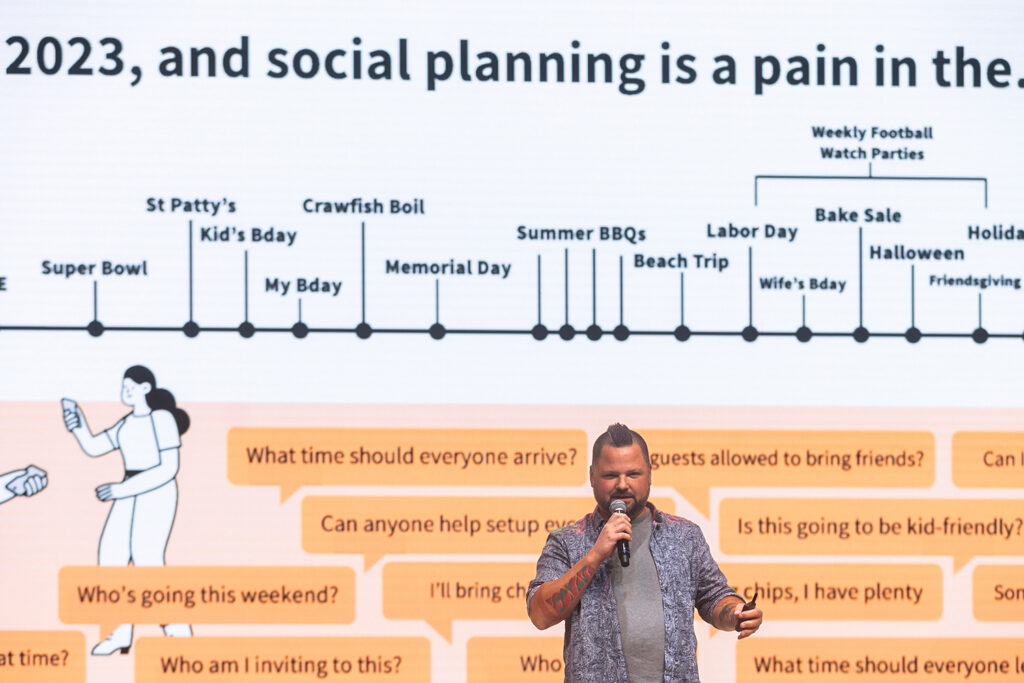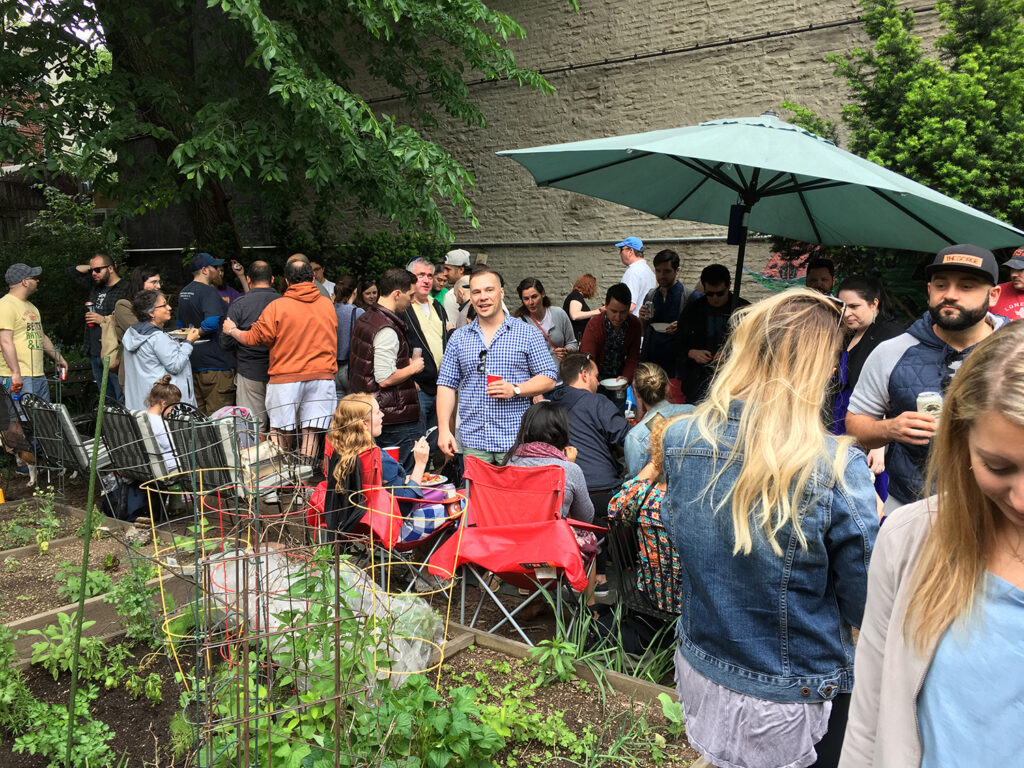In an era dominated by likes, follows, and infinite scrolls, Justin Gray, founder of Potluck, is betting on a different future—one where social technology isn’t about building an audience, but about deepening real-life connections with the people we actually see: our friends, families, neighbors, and coworkers.
Potluck is more than an event planning app. It is a deliberate response to the fragmentation and fatigue wrought by traditional social media platforms. “People don’t meet at the bowling alley anymore,” Gray says. “They meet online, and they use the online world to facilitate meeting offline.” Potluck was built for exactly that purpose: to simplify the process of gathering in real life and, in doing so, to strengthen offline communities.

At its core, Potluck is an end-to-end party planning platform. It handles everything from invitations and RSVPs to in-event chat, sign up sheets, and photo sharing. But what distinguishes Potluck from competitors like Evite or Signup Genius isn’t just its cleaner UX or ad-free experience—it’s the philosophy driving its design. Gray believes the next phase of the internet won’t be about virtual escapes, but about layering technology over real life in ways that enhance our day-to-day experiences.
“I didn’t want to build another social network that collects friends like Pokémon cards,” he says. “I wanted to build a tool that gets out of your way. One that helps you do something you were already going to do—gather with people you care about—just a little more easily.”
This philosophy is embedded deeply in the company’s mission and product design. Potluck’s stated mission is to nurture a sense of community by inspiring shared experiences among friends, family, neighbors, and coworkers. Its core purpose? Eradicating the epidemic of loneliness.
It’s a bold claim, but the product’s design backs it up. Every feature of Potluck is intended to make real-world gatherings easier to organize and more meaningful. Hosts create events with interactive sign-up sheets, real-time updates, and a shared photo feed—called Potluck Moments—that turns parties into memory timelines. There’s no algorithm dictating what guests see, no ads interrupting the experience, and no pressure to build a following. Just a private space for meaningful connection.

Potluck’s decision to operate on a subscription-based model is no accident either. It’s a strategic stand against the ad-driven business model that has compromised the user experience on traditional platforms. “Our core customer is our user, not an advertiser,” Gray insists. “We can’t fulfill our mission if we’re incentivized to keep people scrolling instead of spending time with each other.”
That decision reflects a growing cultural shift. Users are no longer content with platforms that optimize for engagement metrics over human connection. The novelty of having 5,000 online friends has worn off. What people want now is control over their relationships—to see who they want, when they want, without machine learning filtering the conversation.
In this way, Potluck isn’t just another tech startup. It’s a quiet rebellion against the social media status quo. It envisions a future where social apps look less like broadcast platforms and more like private tools for real-world connection. “It’s not about replacing your offline life,” Gray explains. “It’s about enriching it.”
This isn’t an abstraction for Gray. It’s personal. Raised on a farm in Mississippi and seasoned in New York’s entertainment world, he has always been fascinated by how people gather. His background as a comedy club marketing director taught him a truth that tech often forgets: people don’t want to be marketed to; they want to belong.

That belief shapes everything Potluck does. From user experience to product roadmap, the company builds for the busy mom of two who hosts community potlucks, the church event planner juggling spreadsheets, or the neighbor who just wants to throw a summer picnic. Potluck simplifies the work of togetherness so that we can focus on what matters: being together.
In a world of infinite noise and diminishing signal, Potluck offers something radical: simplicity, intimacy, and intention. It’s social media that doesn’t feel like media at all—just life, a little more organized.
“The future of social isn’t about scale,” Gray says. “It’s about depth. It’s about helping people connect in ways that feel real.”
And if Potluck has its way, the next big thing in social media won’t be viral. It’ll be local.














